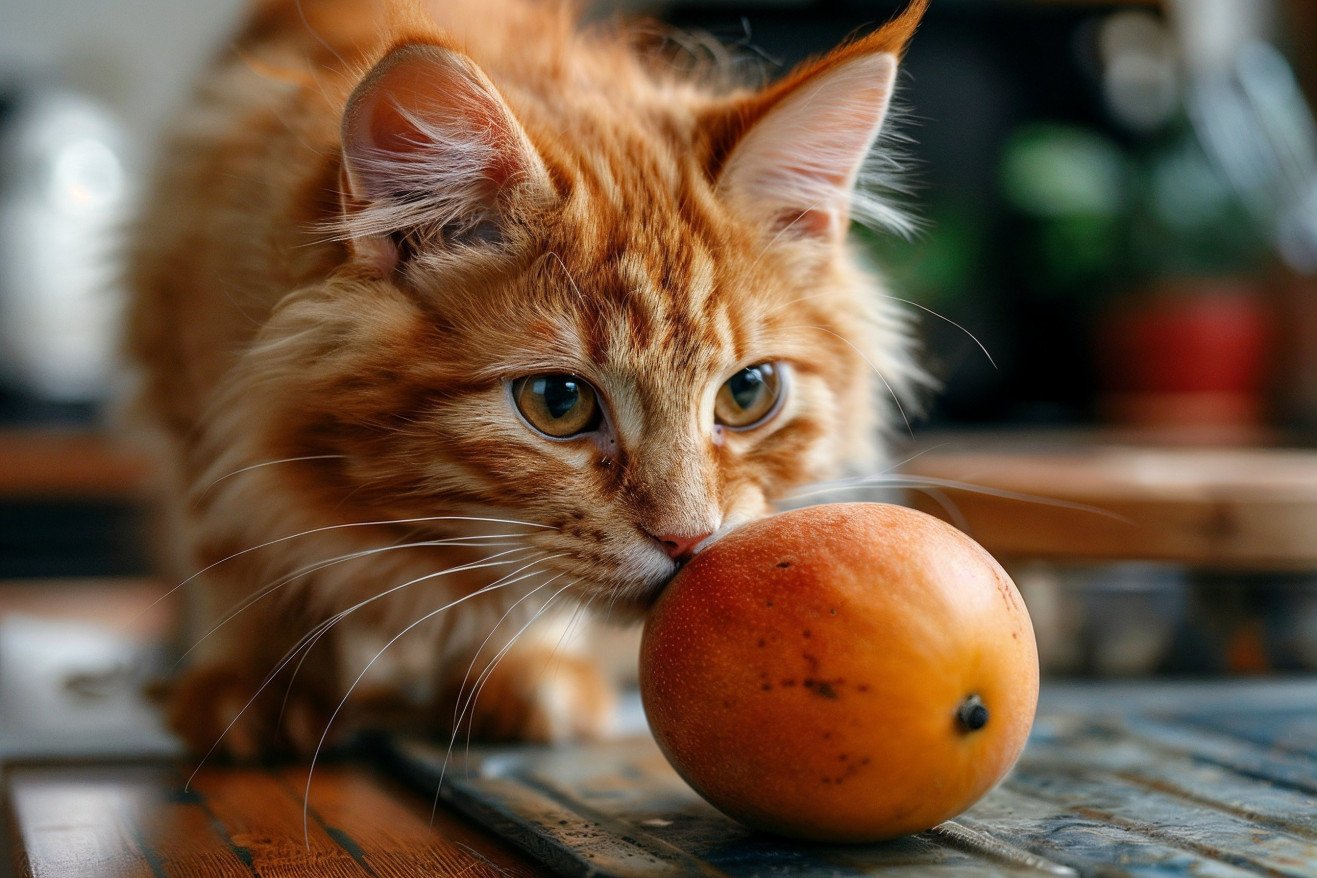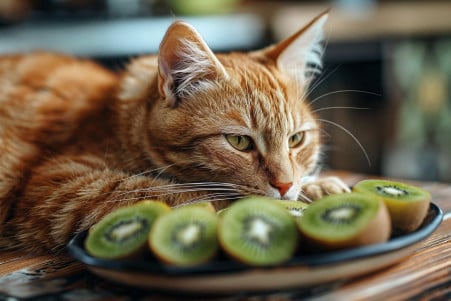Can Cats Have Mangos? The Science-Backed Answer for Your Kitty
27 May 2024 • Updated 27 May 2024

If you have a mango that you need to use up and you're wondering if you can give it to your cat, you're in luck. Mangos are not toxic to cats, but they do contain a lot of natural sugar and fiber, which can lead to gastrointestinal upset, including vomiting and diarrhea, if they're consumed in large amounts. As a result, you should only give your cat a few small pieces of mango at a time and only on an occasional basis.
To help you decide if you want to give your cat some mango, we've researched the topic with the help of veterinarians and feline nutrition experts to find out if mangos are safe for cats to eat. In this article, we'll cover what we learned about the nutritional content of mangos, how they fit into a cat's natural diet, how much mango you should give your cat, and any other factors to consider when you're thinking about adding a new food or fruit to your cat's diet. Armed with this information, you'll be able to decide if you want to treat your cat to this tropical fruit.
Can cats eat mangos?
Nutritional Profile of Mangos for Cats
According to Purina, mangos are a good source of vitamins A, C, and B6, fiber, and antioxidants. That said, cats are obligate carnivores and have all of their nutritional needs met through their regular cat food. In fact, as Daily Paws points out, while mangos do contain some vitamins and minerals, they don't have much nutritional value for cats in comparison to the complete and balanced diet they're already eating.
The sugar in mangos can be a problem for cats who are overweight or have diabetes, according to Purina. That said, cats can't taste sweet things, so they won't be drawn to the fruit's sweet taste, according to Scientific American as cited by Daily Paws. In addition, cats can make their own vitamin C and don't need to get it from their diet, according to Tufts University via Daily Paws, and too much fiber from the fruit can cause digestive upset. As a result, mangos aren't harmful, but they don't offer much in the way of nutritional value to cats.
How to Prepare Mangos for Cats
As mentioned in Yahoo Lifestyle, it's a good idea to peel the mango before giving it to your cat, as "the peels of fruits can sometimes be difficult for dogs and cats to digest." It's also important to remove the pit or seed, as it can be a choking hazard and may contain harmful substances.
Untamed suggests cutting the mango into small cubes or slices to prevent choking and make it easier for cats to eat. They also say that dried and canned mangos should be avoided, as they often contain added sugars and preservatives that can be toxic to cats.
If you follow these guidelines and prepare fresh mangos properly by removing the pit, peeling the skin, and cutting them into small pieces, you can safely give this occasional treat to your cat.
Portion Control and Moderation
Cats should have no more than a small piece of mango each day, usually 1-2 small cubes, according to Purina. The sugar and fiber in mango can cause stomach upset if consumed in larger quantities, says Healthy Paws Pet Insurance. Mango should be considered a treat and not a regular part of a cat's diet, according to Catster.
Always talk to a vet before giving your cat new foods, especially if your cat has a health condition like diabetes or obesity, which could be exacerbated by the sugar in mangos. As Purina points out, it's important to practice portion control when feeding mangos to cats.
Symptoms of Mango Overconsumption and Potential Toxicity
If your cat has eaten too many mangos or is having a negative reaction to the fruit, Mango is Not Toxic To Cats says that you may notice persistent vomiting, diarrhea, or loss of appetite. If your cat has eaten the skin of the mango, you may also notice excessive drooling or skin irritation due to the presence of compounds like urushiol in the skin and leaves of the mango.
Although Cats Protection says that severe reactions are uncommon, if you notice any of these symptoms after your cat has eaten mango, you should seek veterinary care immediately. The severity of the gastrointestinal symptoms your cat experiences will depend on how much mango they have eaten.
More Fruits and Veggies That Are Safe for Cats
Besides mangos, cats can eat small amounts of other fruits, such as bananas, which are a good source of potassium, according to Catster. Blueberries are rich in antioxidants, which are good for a cat's overall health, according to Catster. Watermelon and cantaloupe are both hydrating and provide vitamins and minerals that are good for cats, according to ManyPets and Stella & Chewy's.
When it comes to vegetables, sweet potatoes, which are a good source of fiber and vitamins, can be given to cats as an occasional treat, according to Purina. Green beans, pumpkin, and cucumbers are other vegetables that are safe for cats and can offer some nutritional benefits, according to Catster and Stella & Chewy's.
That said, it's important to feed cats human foods in moderation because fruits and vegetables shouldn't replace a cat's regular, balanced diet, according to Purina. In addition, there are some human foods, such as onions, garlic, grapes, and chocolate, that cats should never eat because they can be toxic, according to ManyPets and Stella & Chewy's.
Conclusion: Mango Treats for Cats Should Be Given in Moderation
Mangos are not toxic to cats, but they should only be given as an occasional treat in small amounts. The high sugar and fiber content in mangos can potentially cause digestive issues if consumed in excess.
Proper preparation, including removing the pit and peel, is crucial for safe mango consumption by cats. While mangos offer some vitamins and minerals, they do not provide significant nutritional value for cats compared to their regular diet.


